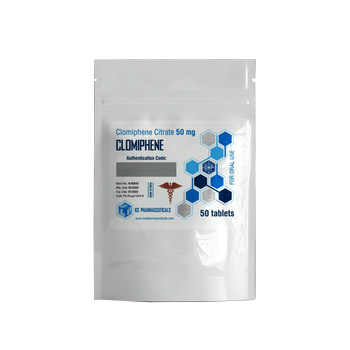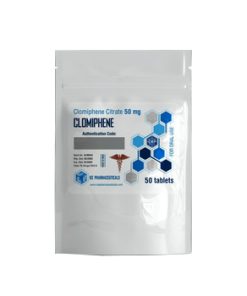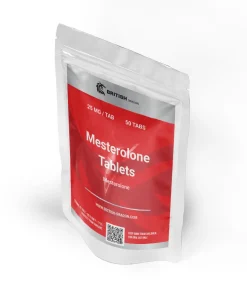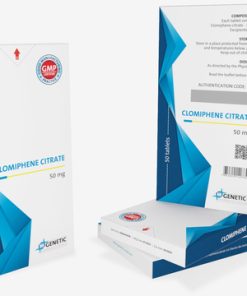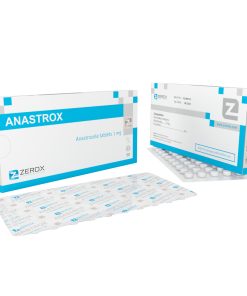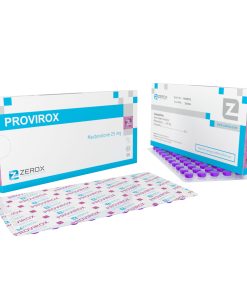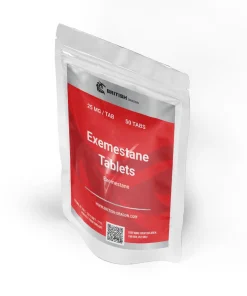Clomiphene ICE
40 USD Original price was: 40 USD.34 USD Current price is: 34 USD.
Package: 50 tabs (50mg/tab)
Active Substance: Clomiphene Citrate
Product Name: Clomifene, Clomed, Clomi , Clomiphene ICE
Clomiphene ICE is administrated to induce ovulation in women with particular medical conditions (such as polycystic ovary syndrome) that slow natural ovulation.
Contra – indications:
It is not indicated to use clomiphene if you have: liver disease, abnormal vaginal bleeding, an uncontrolled adrenal gland or thyroid disorder, an ovarian cyst (unrelated to polycystic ovary syndrome), or if you are pregnant. Clomiphene is not indicated for pregnant women. Discuss to your doctor if you have worry about the possible effects of this drug on a new pregnancy.
Administration:
Clomiphene administration is for 5 days, starting on the 5th day of the menstrual period. Follow your doctor’s instructions. Intake clomiphene exactly as your doctor prescribed you. Follow all directions on your prescription label. The doctor may periodically change the dose to make sure you get the best results. It is not indicated to take this medicine in larger or smaller amounts or for longer than recommended.
Medical action:
Clomiphene is a fertility medicine. It induces the pituitary gland to produce hormones needed to stimulate ovulation (the release of an egg from the ovary). The ovulation will take place within 5 to 10 days after you take clomiphene. In order to increase the chance of becoming pregnant, you should have sexual intercourse while you are ovulating.
Precautions:
To make sure you are taking the drug in safe, tell your doctor if you have: endometriosis or uterine fibroids. It is not proved whether clomiphene passes into breast milk or if it could be harmful for the baby. This medication may slow breast milk production in some women. You must announce your doctor if you are breast-feeding a baby.
The use of clomiphene more than 3 cycles may increase your risk of developing an ovarian tumor. Talk to your doctor about your specific risks.
Clomiphene treatment may increase the chance of having multiple births (twins, triplets). These are high-risk pregnancies both for the mother and for the babies. Talk to your doctor if you have preoccupations about this risk.
Side effects:
Call for medical help if you meet any of these symptoms of an allergic reaction to clomiphene: hives; difficult breathing; swelling of your face, lips, tongue, or throat.
There are cases when women using this medicine develop a condition called ovarian hyperstimulation syndrome (OHSS), mainly after the first treatment. OHSS can be a life-threatening problem.
Announce your doctor right away if you have any of the following symptoms of OHSS: stomach pain, bloating; nausea, vomiting, diarrhea; rapid weight gain, especially in your face and midsection; little or no urinating; or pain when you breathe, rapid heart rate, feeling short of breath (especially when lying down).
Do not use clomiphene and call your doctor if you have pelvic pain or pressure, enlargement in your pelvic area; vision problems; seeing flashes of light or “floaters” in your vision; increased sensitivity of your eyes to light; or heavy vaginal bleeding.
Common clomiphene side effects may include hot flashes; headache; breast pain or tenderness; mild stomach discomfort; or breakthrough bleeding or spotting.
Over dosage:
Call the emergency if you took an overdose of clomiphene citrate.
Brand
ICE Pharmaceuticals
Related products
Post Cycle Therapy
Post Cycle Therapy
Post Cycle Therapy
Post Cycle Therapy
Post Cycle Therapy
Post Cycle Therapy
Post Cycle Therapy
Post Cycle Therapy

